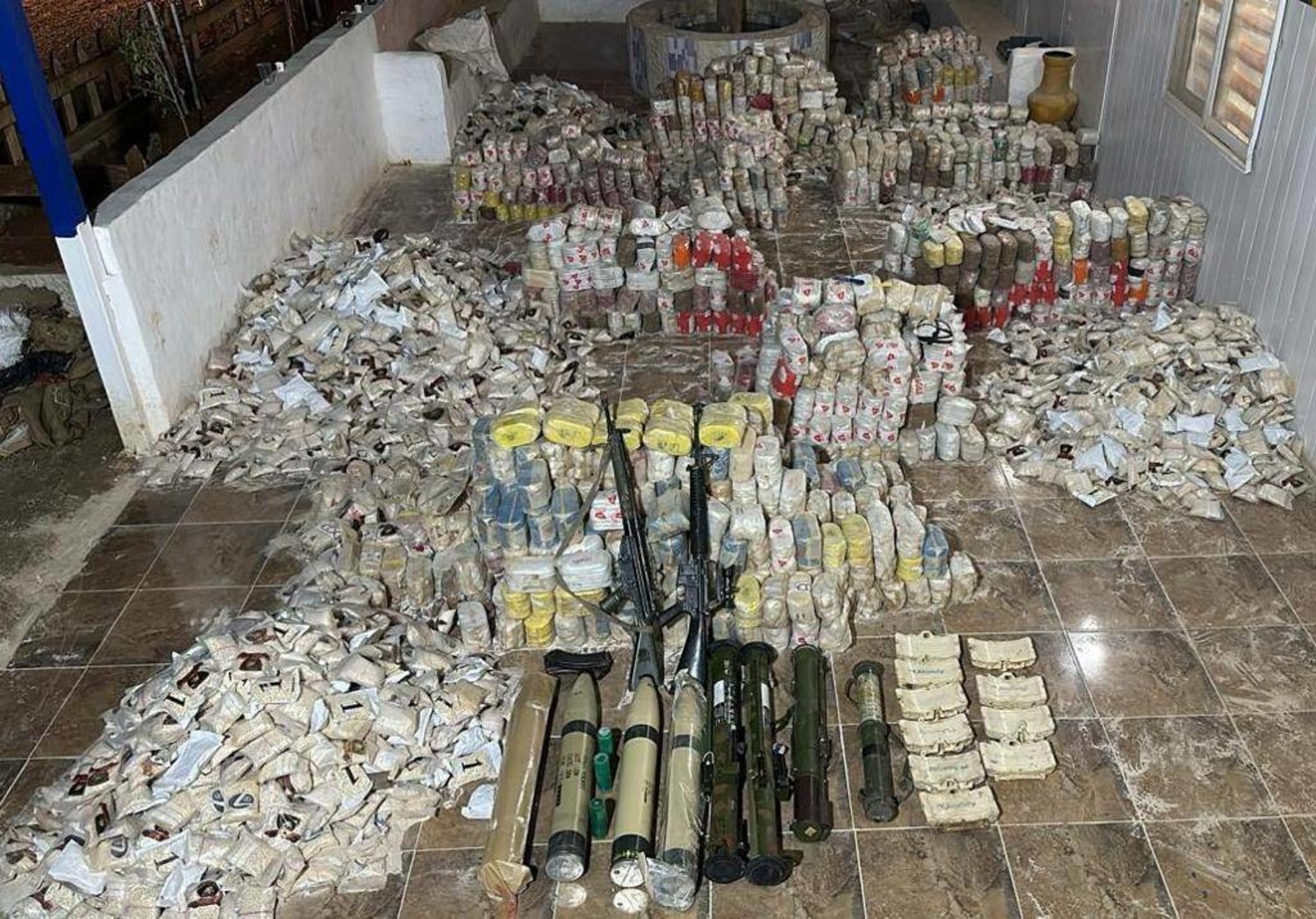
The deteriorating relations between Jordan and Syria due to drug and weapons trafficking have reached a critical point, with significant implications for both countries and the wider region. The escalation of drug smuggling operations from Syria into Jordan has led to heightened tensions and military confrontations between the two nations. This has also raised concerns about regional stability and security, prompting calls for international cooperation to address the growing threat posed by drug and weapon trafficking.
Al-Mamlaka, a Jordanian channel quoted an unnamed security source stating that the “Syrian crisis” had caused an increase in the number of weapons in Jordan, with weapon smuggling into the kingdom increasing by 400%, equaling about 14,000 different weapons. The channel explained that the length of the border (approximately 380 kilometers) has contributed significantly to the increase in smuggling operations.
The conflict between Jordan and Syria over drug smuggling has been characterized by a series of incidents, including military strikes, border clashes, and the arrest of individuals involved in smuggling operations. Jordan has accused the Syrian regime of turning a blind eye to drug trafficking and failing to take effective action to prevent the flow of drugs and weapons across the border. The Jordanian government has also expressed frustration over the lack of cooperation from Damascus in addressing this pressing issue.
The smuggling of drugs, particularly Captagon pills, and weapons from Syria into Jordan has become a source of major concern for Jordanian authorities. The situation has prompted Jordan to take decisive military action, including targeted airstrikes and ground operations, to disrupt smuggling networks and apprehend individuals involved in these illicit activities. The Jordanian military has also emphasized the need for regional cooperation and support in combating drug and weapon smuggling, highlighting the transnational nature of the problem.
On both sides of the border, in Suwayda and Jordan, monitors have been tracking the details of the Captagon War. According to local sources, reporters on both sides of the Syrian-Jordanian border monitored the situation and emphasized the need for individuals involved in smuggling operations to be prosecuted, to preserve the lives of civilians, instead of Jordan launching air strikes.
The Syrian regime’s response to these accusations has been met with skepticism by Jordan and the international community. Despite assertions from the Syrian government that it is taking measures to combat drug trafficking, Jordan and other affected nations remain unconvinced of Damascus’s commitment to addressing the issue. The lack of trust and cooperation between the two countries has further complicated efforts to tackle drug and weapon smuggling across their shared border effectively.
The implications of this conflict extend beyond the immediate security concerns, impacting diplomatic relations, regional stability, and international cooperation. The need for a coordinated and comprehensive approach to addressing drug and weapon trafficking in the region has become increasingly apparent. Jordan’s calls for international assistance and support reflect the complexity and urgency of the situation, as well as the recognition that a unified effort is necessary to combat this transnational threat effectively.
Amman’s ability to obtain Gulf support in combating drugs coming from Syria, the researcher believes that the current Emirati-Saudi treatment of the risks and challenges coming from Iran is based on trying to reach an understanding with Iran itself instead of the previous method of confronting these risks and challenges in harsh ways, which means that Jordan may receive financial support to back its efforts to control the Jordanian-Syrian borders.








